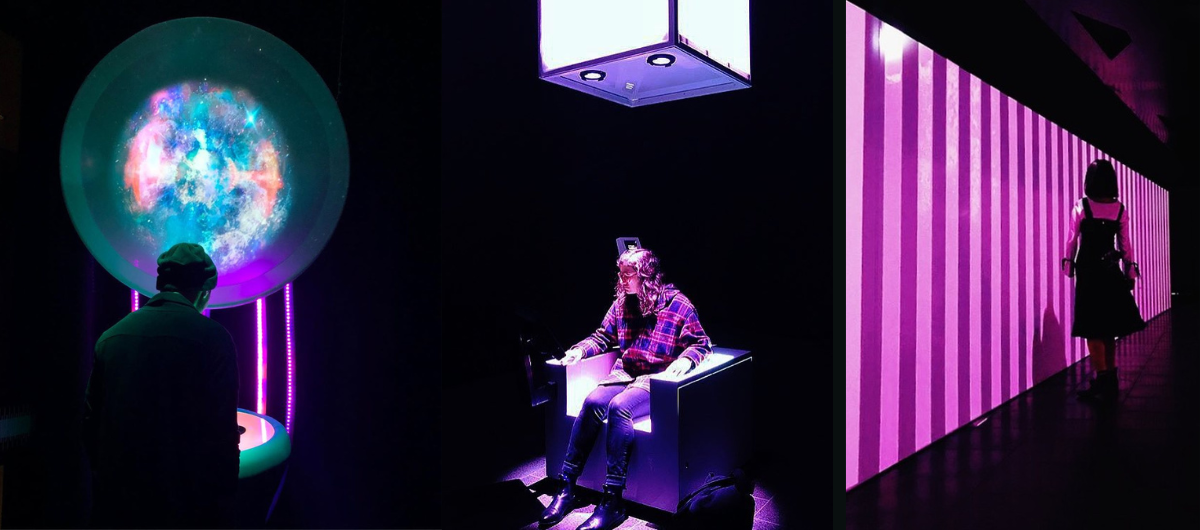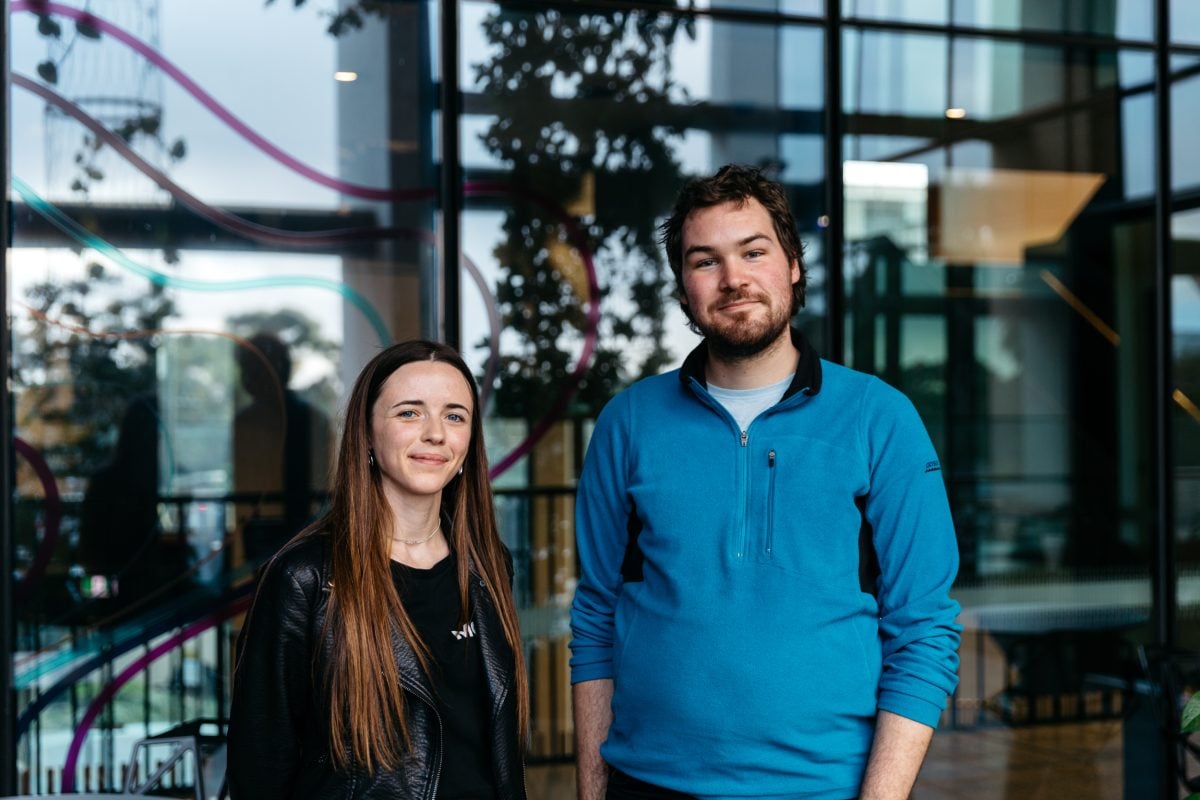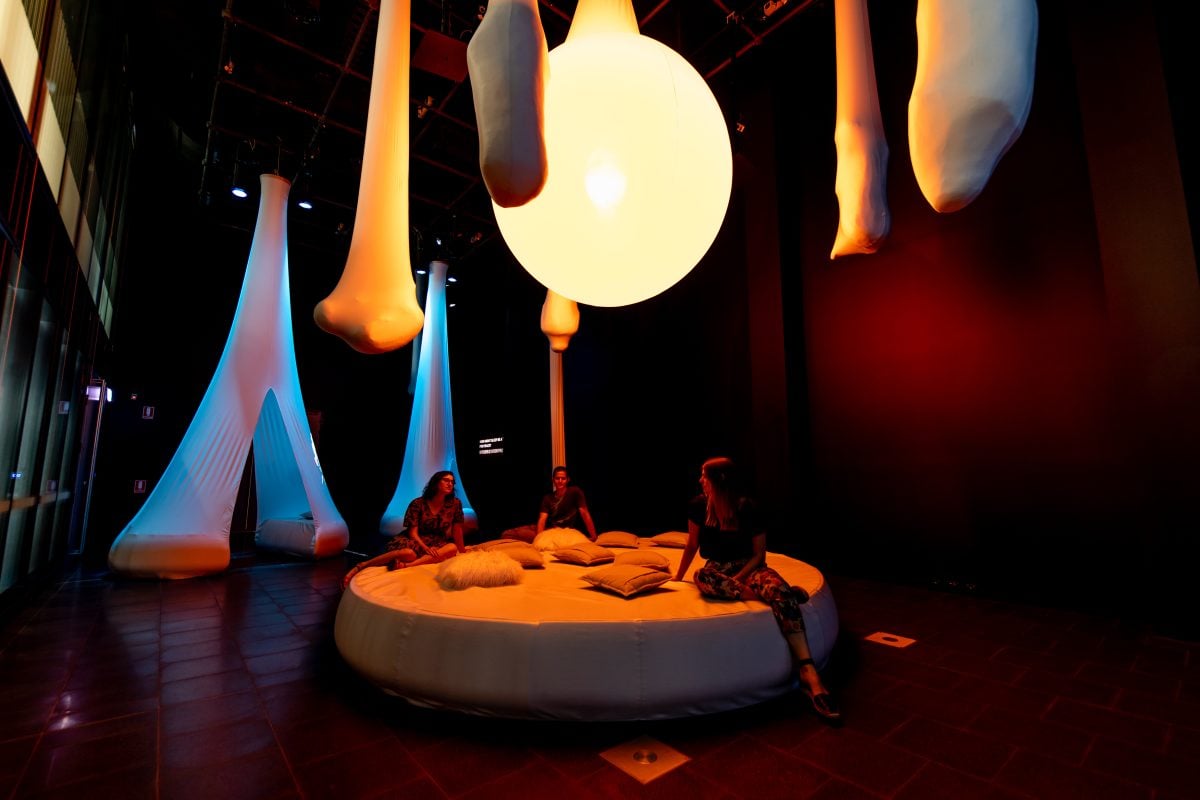Posted 14 Jun

At MOD, we don’t just make exhibits we make new knowledge! We work with a range of researchers from different fields to bring our exhibits to life.
Introducing us…
Hello ☺️ I am Brooke, a Bachelor of Contemporary Arts student. I am currently in my third year and have been a moderator at MOD. for over a year now. Moderating involves helping visitors with exhibits, running tours and ensuring the museum floor is running smoothly. I love creating, learning and discussing ideas with others so working at MOD. suits me perfectly.
Over the summer I was offered the opportunity to undertake a Vacation Research Scholarship with MOD. Through this scholarship, I learnt a lot about how I might approach my creative research practice in the future, how to study effectively and became more comfortable working with and contributing to academic research.
Hello! I’m Hen, I’m a third-year student at Flinders University studying Creative Writing / Indigenous and Australian Studies. I’ve been working at MOD. as a moderator since we opened in 2018 (almost four years now!). I really enjoy the opportunity to connect with colleagues, artists, researchers and visitors across disciplines. As moderators we facilitate visitors’ learning and encourage curiosity at the intersection of art, science and other forms of knowledge.I’m really interested in the tensions between sometimes (seemingly) disparate knowledges, and how embodied practices like walking and deep listening can inform creative practice.
For me, this often comes out in poetry, performance and walking arts projects. The opportunity to work with Brooke on this Vacation Research Scholarship felt like a fascinating chance to gain experience in collaboration and research submission, and a deeper insight into creative research practice.

At MOD., we work with a range of researchers from different fields to bring our exhibits to life. Over the course of this summer, we have been exploring non-traditional research to find out how the MOD. team creates new knowledge through design and curation. And how this can be recognised as contributions to academic knowledge.
When most of us think of research, we think of journal articles, reports and conference papers – the traditional kind. But did you know that creative work by artists, designers, and architects, and even entire exhibitions, can also count as research? These are known as non-traditional research outputs (NTROs). Like all research, NTROs are subject to a process of peer-review to verify the significance of their contribution. For MOD, visitor numbers are a great way to demonstrate alternative peer-review, with tens of thousands of people engaging with the museum each year.
We had to start with the basics! Learning what NTROs are, becoming familiar with key terms and reaching out to academics who we thought would be in a position to help us. Next, we started to identify what previous MOD artifacts, exhibits and exhibitions were NTROs. From here we had the chance to meet with and learn from a range of UniSA researchers who had collaborated with MOD in the past. Finally, through a lengthy process of trial, error, advice and surveys, we were able to finalize 10 NTRO submissions. As well as write a ‘How To’ guide that other MOD staff can use to create more submissions.
We found that over the years, MOD has contributed a lot of high quality knowledge to the fields of Museum Studies, Science Communication, Creative Arts, Education and Game Design. We were able to identify that MOD’s contributions are mainly in areas of exhibition design and curation, often communicating traditional research (such as in Sleep Ops, Symbiosville and Octopus Estate) in new and interactive ways. It’s this communication of those ideas that can sometimes count as the research!

A secondary part of our Vacation Research scholarship involved developing some initial ideas for an Open Lab space at MOD. If you’ve come to see INVISIBILITY, you will notice that one of our storage spaces on Level 1. This has been renovated to be a co-design and prototyping space for researchers to use. It’s also a way for visitors to learn about current research, give feedback or be involved in user-testing.
More about Open Lab here.
We visited public libraries and makerspaces to gather some ideas for how we wanted the Open Lab to look and feel as a space. Some design considerations were having modular storage and furniture to accommodate events such as talks or workshops. As well as ensuring that adequate technology could be available for researchers to use and allow for the space to have a virtual dimension.
Crucially, we conducted interviews with UniSA Creative researchers to gain a better understanding of what researchers might want from the Open Lab. In order to see how other similar collaborative working and residency spaces have worked in the past. These case studies included the beta_lab at the Casula Powerhouse Museum, the Makerspace at Parks Library and UniSA’s Match Studios.
We learnt that attracting researchers to use the Open Lab through facilities would be a much more sustainable approach than through trying to attract them purely with funded opportunities. We also learnt that as well as focusing on the physical space, it is also important to create a parallel/integrated virtual version of the lab. This opens up opportunities for more people to participate and be included. Supporting projects from a range of disciplines and timelines is also beneficial, creating the opportunity for multidisciplinary networking and collaboration, as well as providing visitors with a variety of topics to engage with.
Now that the summer is over, we are both back to full-time study and continuing to work in the galleries. MOD.’s Director, Dr Kristin Alford has taken over the NTROs project to ensure that the submission process goes smoothly and the contributions that MOD makes to new knowledge can be academically recognised. Natalie Carfora, one of our Exhibition Coordinators, has taken charge of the Open Lab, already making a great start on the space. Finally, in our spare time, we are all going to work together to write a journal article on our findings, try our luck at having it published and then be able to share what we learnt with other institutions around the world.
MOD. things at the UniSA Library